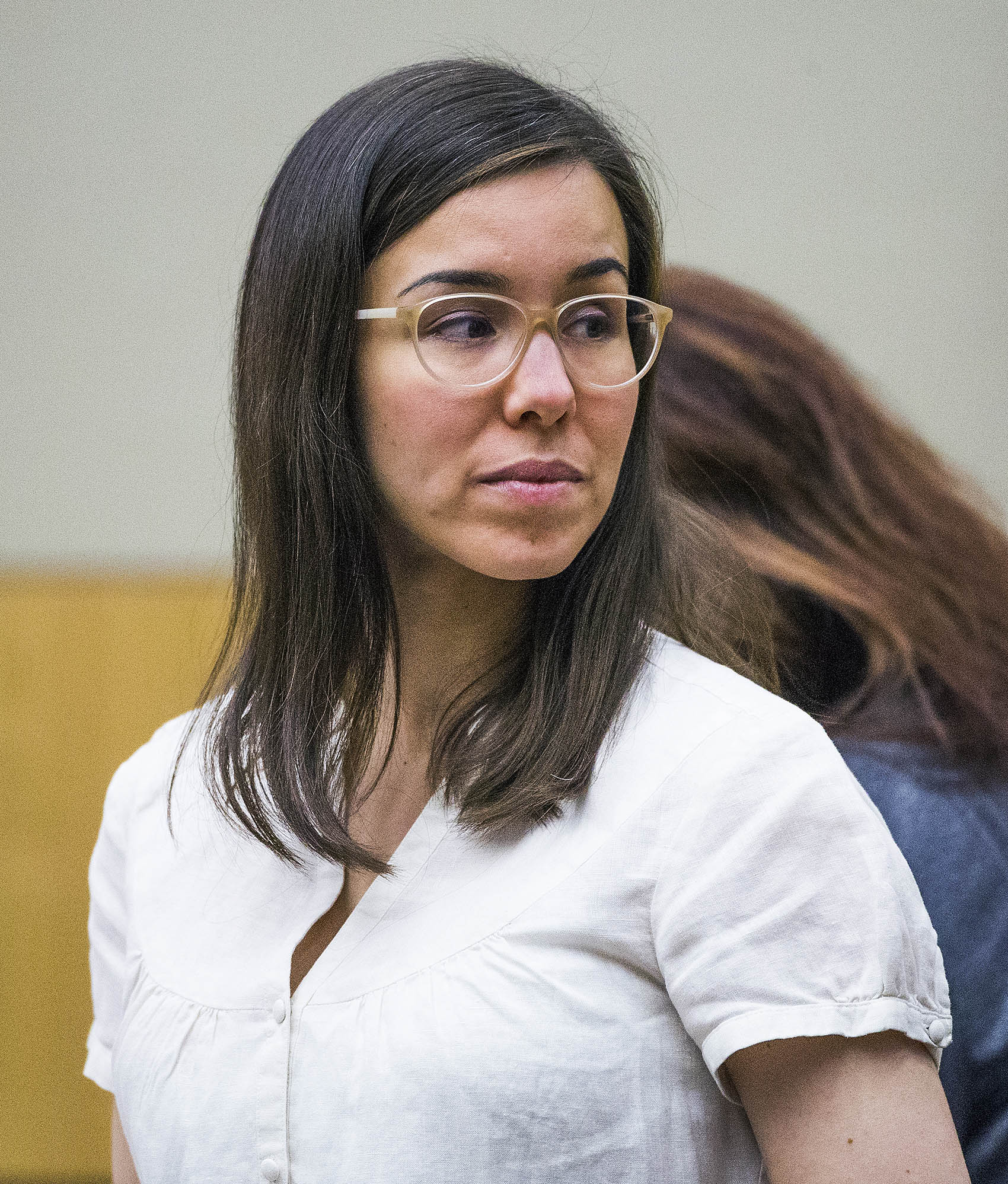PHOENIX (USA TODAY) — The fate of Jodi Arias is now in the hands of a jury.
The prosecution and defense in the sentencing retrial of the woman convicted of killing Travis Alexander gave closing statements and rebuttals Tuesday and Wednesday, before leaving the decision of whether Arias should live or die in the hands of the 12 jurors who sat through five months of testimony.
Defense attorney Kirk Nurmi spoke first, telling the jury there was no happy ending to the case.
"Do you kill this woman?" Nurmi asked the jurors. "Do you kill Jodi Arias for what she did on June 4, 2008?"
Nurmi reminded the jurors of the mitigating factors he had presented, including Arias' age at the time of the murder, alleged abuse and mental-illness diagnosis.
"From the day of her birth, the cards were stacked against Ms. Arias," Nurmi said.
At the end of a nearly three-hour closing, Nurmi read from the transcript of Arias' secret testimony, trying to show that Arias had shown remorse.
At that point, almost every member of Alexander's family stood up and left the courtroom. They only returned once Nurmi was finished with his closing argument.
Maricopa County Superior Court Judge Sherry Stephens read final jury instructions and her clerk picked two jurors by lottery to serve as alternates. They will not deliberate unless something happens to one of the other 12.
Arias, 34, was found guilty in 2013 of first-degree murder in the killing of her boyfriend, Alexander, in 2008. Alexander was stabbed 27 times, his throat was slashed and he was shot once in the head. His decomposing body was found days later in the shower of his Mesa, Ariz., home.
The jury that convicted her was unable to reach a decision regarding punishment and a second jury was impaneled to decide whether Arias should receive the death penalty.
The retrial has been marked by accusations of misconduct on the part of the prosecutor, Juan Martinez. Arias' lawyers spent weeks laying out a case for misconduct, alleging evidence was destroyed in the first trial and deliberately withheld from Arias' defense team.
The defense team wanted to the death penalty taken of the table, a move that would have immediately sentenced Arias to life in prison. But Stephens ruled no misconduct had taken place and let prosecutors continue to present a case for the death penalty.
At the same time, the retrial was continuing, with the jury knowing nothing about the misconduct allegations. The defense called numerous psychologists to testify that Arias was mentally ill. They maintain she has borderline personality disorder and post-traumatic stress disorder as a result of what they called her abusive relationship with Alexander.
Prosecutors countered by accusing Arias of fabricating that abuse for her own gain. Martinez pointed to Arias' diaries, which make no mention of any abuse. Martinez painted Arias as an obsessive lover who planned Alexander's murder and attempted to cover her tracks with a false alibi.
In an unprecedented move, Jodi Arias refused to testify in the retrial unless the courtroom was closed to the public and the media. Transcripts of the closed-door hearings show Stephens was initially skeptical, but eventually relented. On October 30, 2014, Stephens ordered the courtroom closed and Arias testified in secret for two days.
Phoenix area media outlets appealed the ruling to the Court of Appeals. That court agreed with the media and reversed Stephens' decision. Arias then refused to complete her testimony, citing threats she had received while in jail.
If another jury deadlock occurs, the death penalty would automatically be removed as an option, leaving a judge to sentence Arias to life in prison or life in prison with the possibility of release after 25 years.
Contributing: Michael Kiefer, The Arizona Republic; The Associated Press.


